Chopped Winter Salad
on Jan 04, 2019, Updated Feb 14, 2024
This post may contain affiliate links. Please read our disclosure policy.
Beautiful, sweet, orange butternut squash gets roasted with some slightly — but appealingly — bitter radicchio in an easy winter salad recipe.
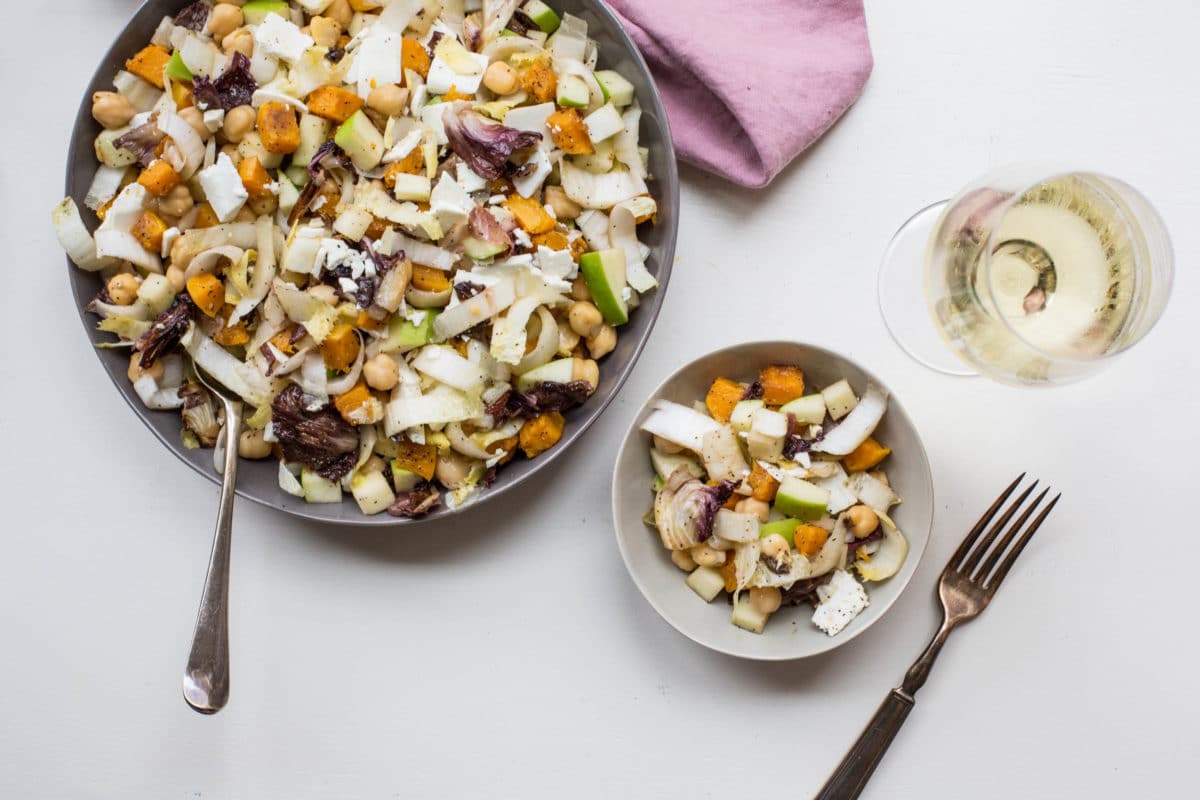
How often do we read some articles about how meaningful it is to cook with the seasons? And how easy is that to do, say, April through October? But then winter arrives and tests our seasonal good intentions.
“O, wind, if winter comes, can spring be far behind?” Yeah, yeah, Shelley, you try and make a meal out of two rutabagas and a turnip. But hey, I’m not really as curmudgeonly about winter as that. I love cold weather cooking, in fact. And I like a challenge.
By signing up, you agree to our Privacy Policy.
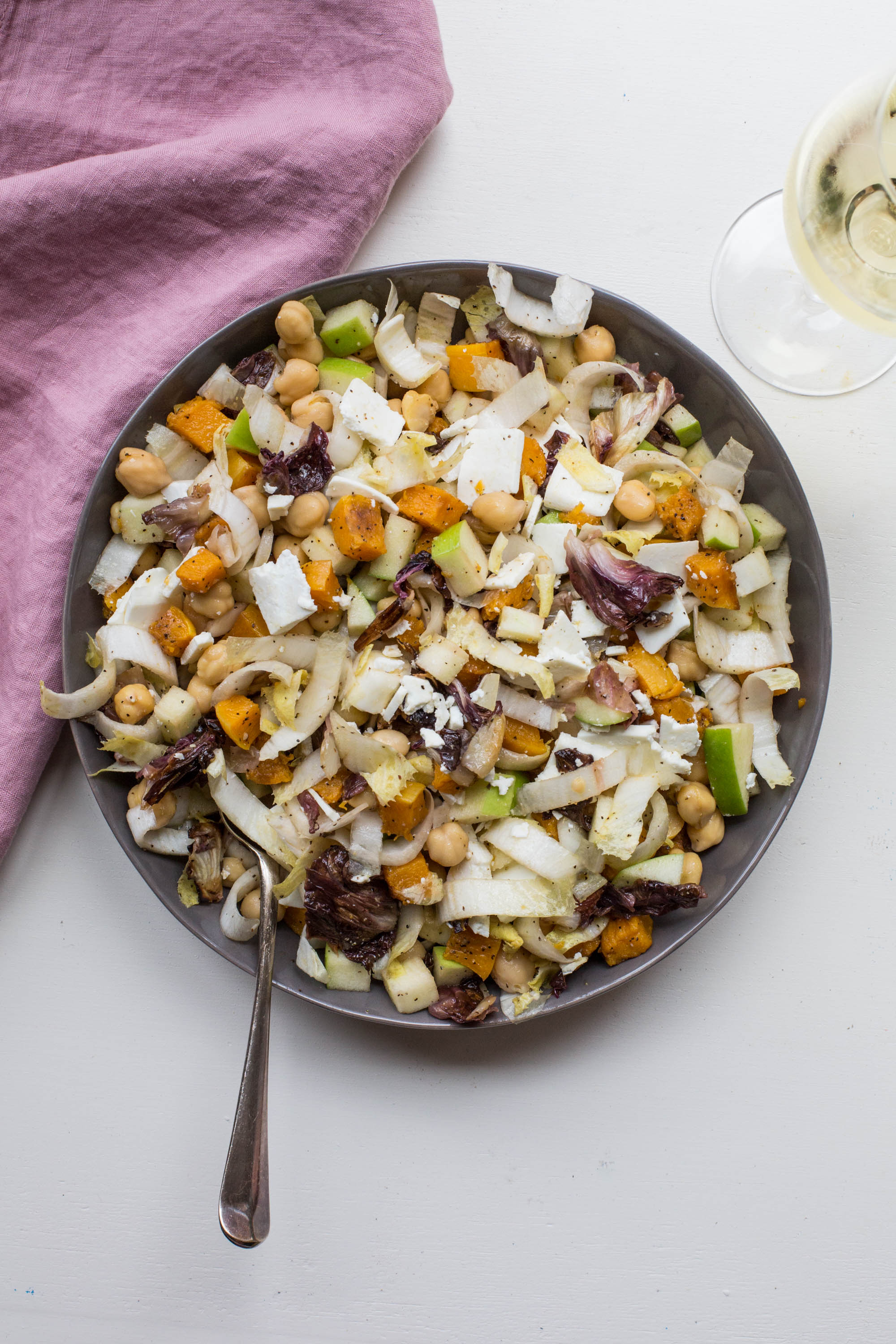
In this Chopped Winter Salad beautiful, sweet, orange butternut squash gets roasted with some slightly — but appealingly — bitter radicchio.
Making a salad in the warm months is an exercise of greediness and narrowing down choices. Our bowls overfloweth. But daylight savings arrives, and grabs us by the farmers’ market, and the pickings get slimmer. But then the creative juices start to flow, and we might think about including a cooked ingredient or two in a salad and maybe some cold-weather fruit.
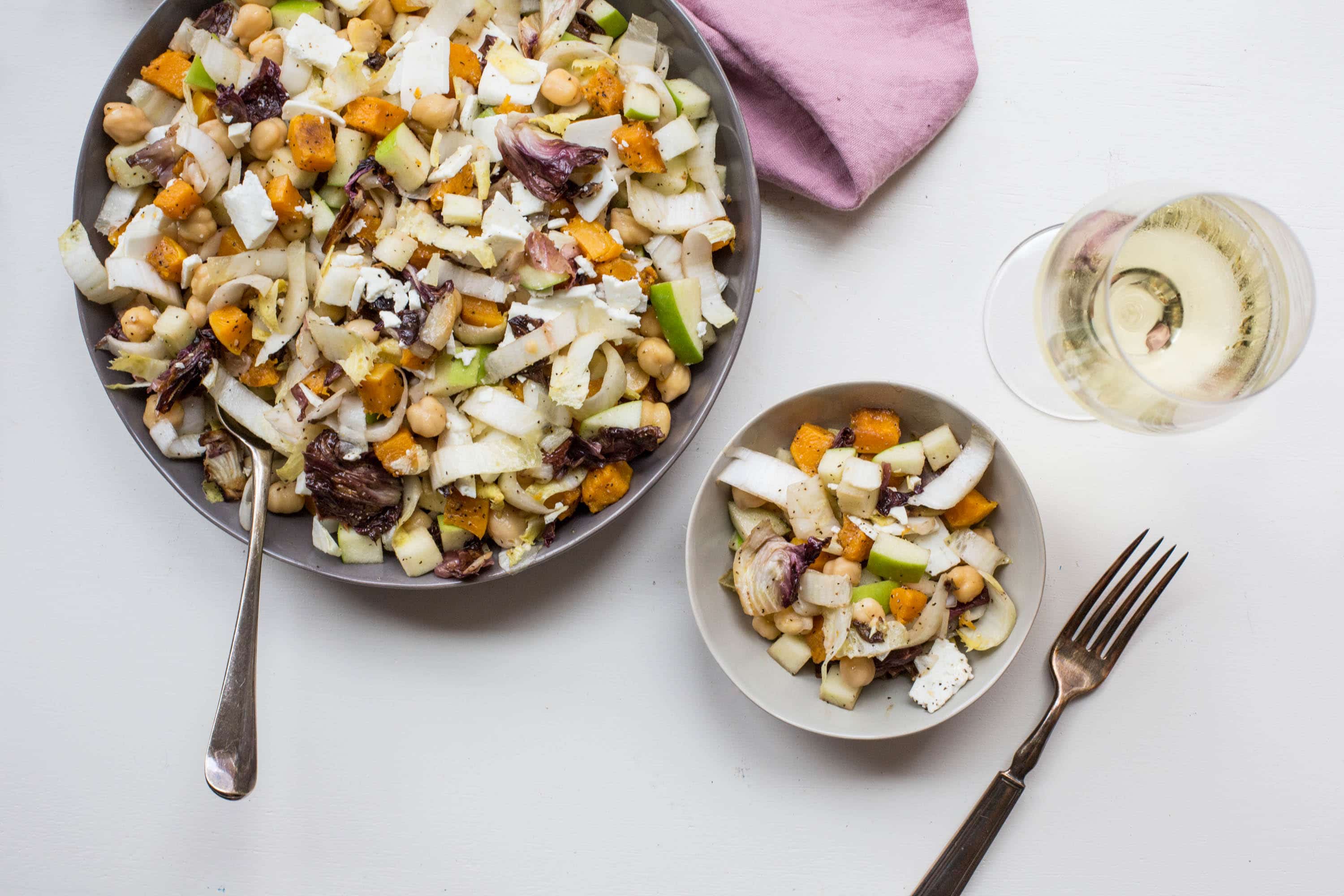
In this salad, beautiful, sweet, orange butternut squash gets roasted with some slightly — but appealingly — bitter radicchio. The roasting process actually sweetens up the lettuce a bit, as well as the squash. When cooled, they are mixed with some assertive endive, tart apple, and earthy chickpeas.
You can choose between red wine or balsamic vinegar for the dressing. Either will amp up the tartness, and the balsamic will add a bit of sweetness as well.
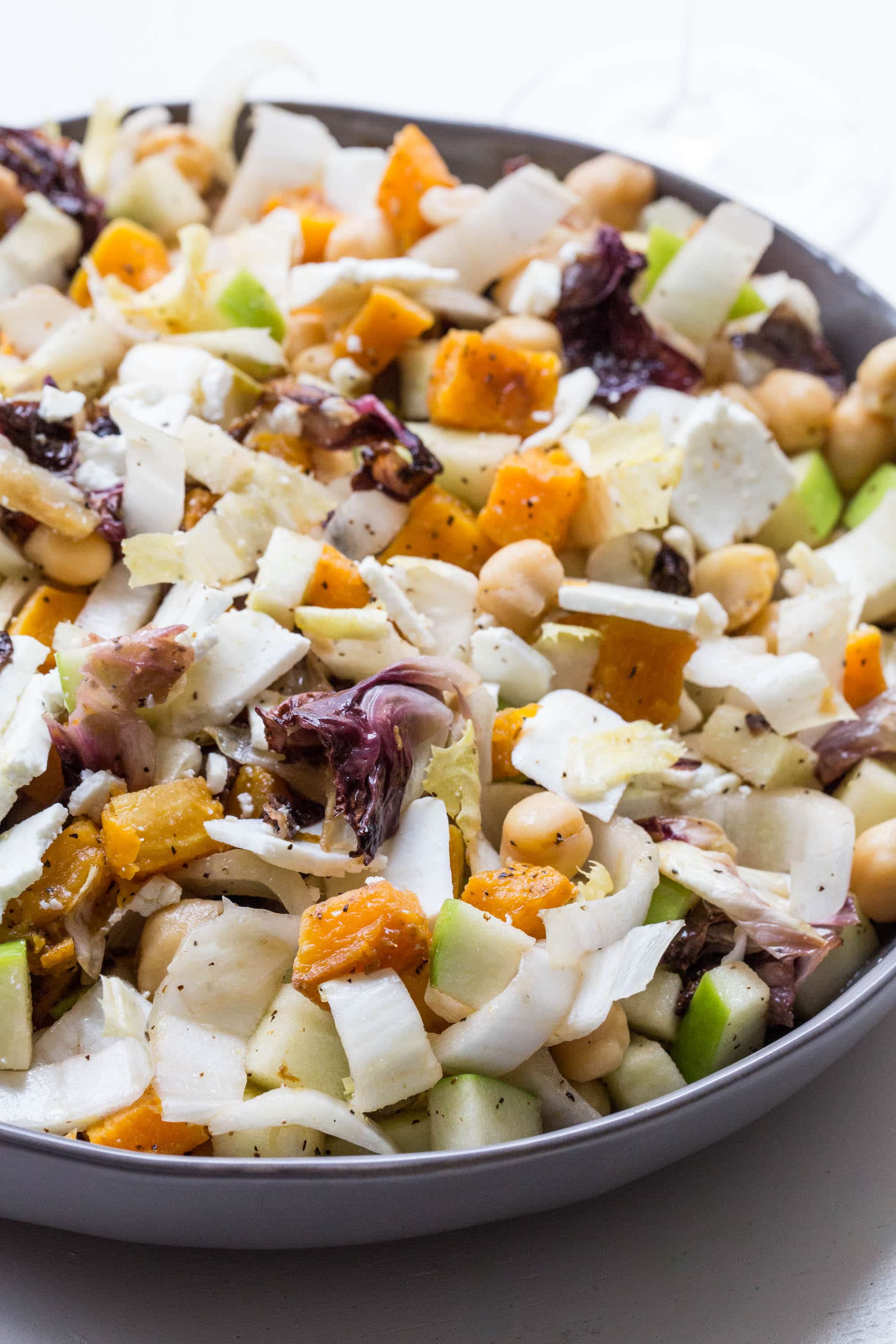
What Is Ricotta Salata?
And the ricotta salata is an absolutely amazing finishing touch. It is an Italian cheese that should be a whole lot more popular than it is. Ricotta salata is actually made from the whey of sheep’s milk. It has an ivory color, a lovely saltiness, and a firm, crumbly texture.
If you can’t find it, a cup of crumbled feta would do you just fine. You could also use goat cheese, but I might sprinkle that over the top of the salad so it stays distinct and doesn’t mush into the rest of the salad.
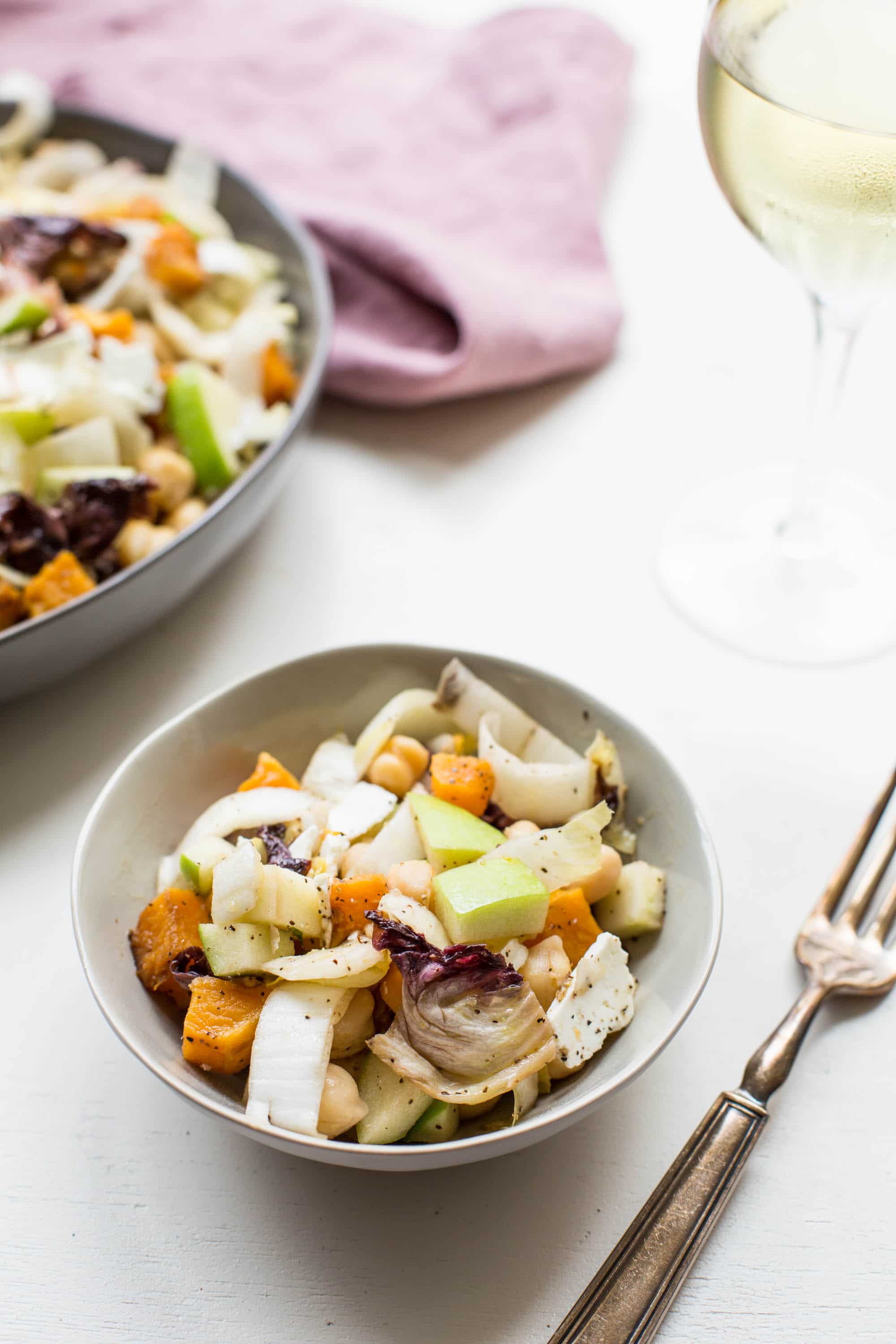
Pin this now to find it later
Pin It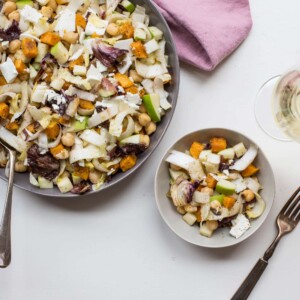
Chopped Winter Salad
Ingredients
- 1 pound cubed, ¾-inch butternut squash
- Kosher salt and freshly ground black pepper (to taste)
- 4 tablespoons olive oil (divided)
- 1 large head radicchio (quartered and cored; each quarter sliced in thirds crosswise)
- ¼ cup balsamic or red wine vinegar
- 2 large heads endive (sliced cross-wise into 1/2-inch slices)
- 1 (15.5-ounce can) chickpeas (drained and rinsed)
- 1 green apple (cut into 1/2-inch dice)
- 1 cup slivered ricotta salata
Instructions
- Preheat the oven to 425 F. Place the squash with 1 tablespoon of olive oil on a rimmed baking sheet, season with salt and pepper, and toss well. Spread out into a single layer, and roast for 15 minutes, until almost tender. Remove from the oven, add the radicchio, toss again, and spread out again into a single layer. Roast for another 8 to 10 minutes until the squash is tender but still firm and the radicchio is wilted. Remove and let cool to room temperature.
- In a large bowl, whisk together the vinegar, remaining 3 tablespoons of olive oil, salt, and pepper. Add the cooled squash and radicchio, endive, chickpeas, apple, and ricotta salata and toss to combine. Taste and adjust seasonings as needed.


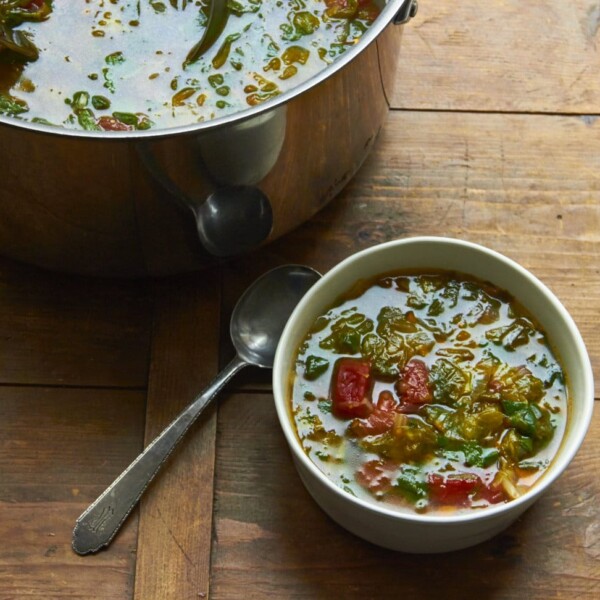










My mother was Picarde, from the northeast region of France, up near Belgium. We grew up with the glorious bitter and tart greens that many Europeans love so much: Belgian endive, escarole, sorrel… When I saw this recipe I knew I had to try it and was not disappointed. Actually I prepared it twice, as written, then roasted & added in Belgian endive & Brussel sprouts. But what I find more valuable than the recipes is the thoughtful commentary that introduces the recipe, in particular the discussion on trying to focus on seasonal produce. It’s a sublime exercise in consuming what’s available naturally & taking advantage of freshness, seasonality, saveur, & avoiding pushing the soil–whether in the ground or in bag–to produce more than it’s intended to. Be kind to Mother & she’ll take care of you.